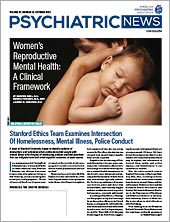More than 3 in 4 topical hemp-derived cannabinoid products sold over the counter or online are labeled inaccurately regarding the amount of cannabidiol (CBD) they contain, a study in JAMA Network Open has found. Many of the products in the study also contained delta-9-tetrahydrocannabinol (THC), the psychoactive compound in cannabis, but this was not noted on the label. Furthermore, many of the labels made therapeutic claims about treating conditions for which the products are not approved by the Food and Drug Administration (FDA), such as pain and inflammation. (To date, the FDA has approved CBD to treat rare epilepsy disorders only.)
“It is obviously concerning that the vast majority of the products were inaccurately labeled. I assume many consumers of these products do not know they are potentially being exposed to THC,” lead author Tory R. Spindle, Ph.D., told Psychiatric News. Spindle is an assistant professor in the Department of Psychiatry and Behavioral Sciences at Johns Hopkins University School of Medicine. “The other thing that stood out was the health claims being made. There is very little clinical research on these products so we don’t have good evidence to back up claims that they are effective for pain.”
Spindle and his colleagues examined the contents of 105 topical products that were purchased either in person from retail locations such as grocery stores, pharmacies, beauty and cosmetic stores, and health and wellness stores or purchased online. They considered the products to be accurately labeled if the amount of CBD in the entire product was within 10% of the labeled total amount. They deemed the products inaccurately labeled if the amount of CBD in the entire product was greater than 10% or less than 10% of the labeled total amount.
Of the 89 products that listed a total amount of CBD on the label, only 24% were accurately labeled, 18% contained at least 10% less CBD than the label stated, and 58% contained at least 10% more CBD than advertised. Furthermore, 35% of all 105 products contained THC, although they contained less than 0.3% THC. Among all products, 28% made unapproved therapeutic claims, 14% made unapproved cosmetic claims, and only 47% noted that they were not approved by the FDA.
“These findings highlight the need for proper regulatory oversight of cannabis and hemp products to ensure these products meet established standards for quality assurance so that consumers are not misled by unproven therapeutic or cosmetic claims,” Spindle and colleagues wrote. “These data also suggest that clinical studies are warranted to determine whether topical products with THC can produce psychoactive effects.”
Spindle said that psychiatrists should discuss these products with their patients who may be using them and inform their patients that there is scarce research demonstrating that these products, especially topical ones, are effective treatments for pain or anxiety.
“I think it is also important to highlight that these products are not well regulated and therefore there is little quality control,” Spindle said. “[Patients] may be using a product that does not contain the amount of CBD it says on the label or that contains other contaminents that would not be present in well-regulated drugs.”
This study was supported by the Substance Abuse and Mental Health Services Administration. ■

